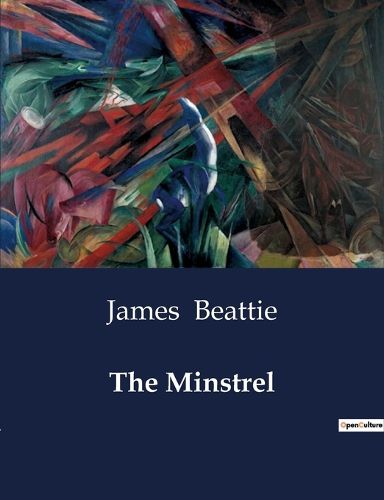Readings Newsletter
Become a Readings Member to make your shopping experience even easier.
Sign in or sign up for free!
You’re not far away from qualifying for FREE standard shipping within Australia
You’ve qualified for FREE standard shipping within Australia
The cart is loading…






"The Minstrel" is a narrative poem written by James Beattie, a Scottish poet and philosopher. The poem is often referred to as "The Minstrel; or, The Progress of Genius." It was first published in two parts in 1771 and 1774, and it is considered one of Beattie's major works. Key Features of "The Minstrel" Genre and Style: "The Minstrel" belongs to the genre of Spenserian allegory and is written in the Spenserian stanza, a nine-line verse form invented by the Elizabethan poet Edmund Spenser. Structure: The poem consists of two parts, each recounting the experiences and reflections of the protagonist, a young shepherd named Edwin, who aspires to be a minstrel. Themes: The poem explores themes of nature, the imagination, the pursuit of knowledge, and the development of the poetic mind. Edwin's journey is a symbolic representation of the poet's own quest for inspiration and wisdom. Influence: "The Minstrel" reflects the influence of the Romantic movement, with a focus on emotion, nature, and the individual's spiritual and creative development. Imagery and Descriptions: Beattie's poem is known for its vivid descriptions of nature, landscapes, and the inner workings of the poet's mind. The poem often employs pastoral imagery to convey its themes. Moral and Philosophical Elements: Beattie integrates moral and philosophical reflections into the narrative, discussing the influence of education, the dangers of skepticism, and the importance of faith. "The Minstrel" was well-received in its time and contributed to Beattie's reputation as a poet. The work showcases Beattie's skill in combining the Spenserian tradition with his own philosophical and moral concerns. If you are interested in exploring the full text, you may find editions of Beattie's collected works or anthologies of 18th-century poetry.
$9.00 standard shipping within Australia
FREE standard shipping within Australia for orders over $100.00
Express & International shipping calculated at checkout
"The Minstrel" is a narrative poem written by James Beattie, a Scottish poet and philosopher. The poem is often referred to as "The Minstrel; or, The Progress of Genius." It was first published in two parts in 1771 and 1774, and it is considered one of Beattie's major works. Key Features of "The Minstrel" Genre and Style: "The Minstrel" belongs to the genre of Spenserian allegory and is written in the Spenserian stanza, a nine-line verse form invented by the Elizabethan poet Edmund Spenser. Structure: The poem consists of two parts, each recounting the experiences and reflections of the protagonist, a young shepherd named Edwin, who aspires to be a minstrel. Themes: The poem explores themes of nature, the imagination, the pursuit of knowledge, and the development of the poetic mind. Edwin's journey is a symbolic representation of the poet's own quest for inspiration and wisdom. Influence: "The Minstrel" reflects the influence of the Romantic movement, with a focus on emotion, nature, and the individual's spiritual and creative development. Imagery and Descriptions: Beattie's poem is known for its vivid descriptions of nature, landscapes, and the inner workings of the poet's mind. The poem often employs pastoral imagery to convey its themes. Moral and Philosophical Elements: Beattie integrates moral and philosophical reflections into the narrative, discussing the influence of education, the dangers of skepticism, and the importance of faith. "The Minstrel" was well-received in its time and contributed to Beattie's reputation as a poet. The work showcases Beattie's skill in combining the Spenserian tradition with his own philosophical and moral concerns. If you are interested in exploring the full text, you may find editions of Beattie's collected works or anthologies of 18th-century poetry.